-
Why Should You Recycle Electronics?
In today’s digital age, our electronic devices are constantly evolving and adapting to include new features and hardware. When you are ready to dispose of a computer, cell phone, or other electronic device, think twice before you toss your item into the dumpster. A company that offers recycling serving Atlanta can help you recycle all of the e-waste that is generated by your home or business. Electronic recycling bins are designed to safely house electronic waste until it can be processed at a designated facility. Let’s review why recycling is so important when you are getting rid of your old electronics.
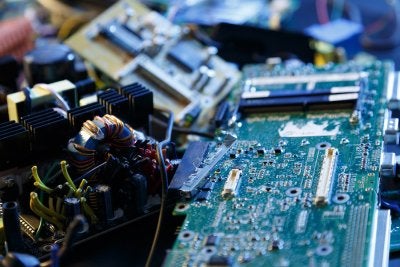
Provide Important Materials
One reason that e-waste recycling is so important is that your old, outdated electronic items may contain valuable materials that can be used in various industries. Cell phones, computers, and other electronics are filled with precious metals that have been mined out of the earth. Rather than depositing these materials in the trash, you can give them new life by sending them to a recycling facility.
Prevent Landfill Overflow
Our landfills are quickly getting filled up with electronic waste, along with many other types of items. By recycling, rather than tossing, your electronic waste, you can help to conserve the limited space that is still available in our country’s landfills. Since computers and other devices are made out of non-biodegradable materials, they will not be able to decompose after they have been thrown in the trash.
Avoid Toxic Pollution
Along with their precious metals and other valuable materials, electronic items often contain large amounts of toxic substances. After an electronic device is tossed in the trash, its toxic components will start to leech into the surrounding environment. A main component of the e-waste recycling process is to safely remove and dispose of any toxic chemicals or substances. When you take the time to donate your old electronics to a dedicated recycling facility, you can rest assured that you are doing your part to protect the planet from pollution.
-
Who Can Benefit from Our Dumpster Rental Services?
If your site produces large volumes of waste, you may be seeking new strategies for managing your trash and recycling. At Southern Waste and Recycling, our dumpster rental services may provide you with the solution that you need for handling large volumes of trash and refuse. With our affordable dumpster rental prices, you will be able to easily afford a dumpster in Atlanta.
During our years in the dumpster rental industry, we have found that our services are appropriate for a variety of businesses and industries. If you work in the manufacturing or processing sectors, you may find that our dumpster rental services help you to handle the excess waste that is generated throughout your busy day. Other facilities, such as schools, hospitals, and restaurants, also benefit from our dumpster rentals. Rather than attempting to fit all of your disposables in a small, municipal waste bin, you can tackle your waste all at once by renting one of our spacious dumpsters.
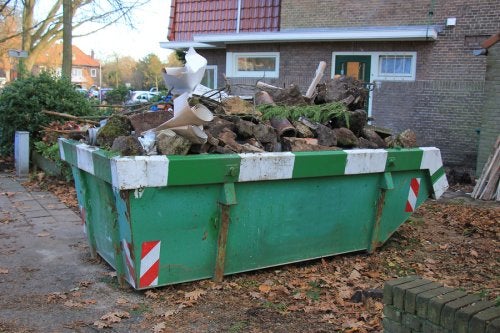
-
Tips for Launching a Food Recycling Program
While you may be familiar with the process of recycling paper, plastic, and metal items, you may be surprised to learn that food waste can also be recycled. In fact, food waste recycling serving Atlanta is helping many businesses cut down on their total waste, while also providing valuable compost to local farmers. If your company handles food on a daily basis, consider setting up recycling bins to handle your extra food scraps and waste. Here is a look at some essential tips that will help you to launch a food recycling program for your business.

Learn About What Types of Foods Can Be Recycled
The food recycling process only works with certain items. Before you launch a food recycling program for your business, make sure to read up on what types of foods can be placed in your recycling bin, and which types must be thrown in the trash. Some examples of foods that can be recycled include fruit, vegetables, and baked goods. Meat and fish, by contrast, cannot be recycled.
Conduct a Thorough Waste Audit
Before you start recycling food at your facility, you will need to provide your recycling company with a thorough waste audit for your business. During your waste audit, you will take note of the types of waste that are typically generated throughout your workday, as well as the total volume of waste that you end up tossing at the end of each shift. Your waste audit will help your recyclers determine the proper size for your food waste recycling bins.
Consider Your Overall Cost Benefits
In addition to helping promote local farmers, food waste recycling can also provide great cost savings for your business. Your company may be paying a monthly rate to dispose of food waste and other trash at the landfill. By diverting much of your food waste to a recycling program, you will be able to cut down on your waste disposal costs significantly.
-
A Guide to Universal Waste
Proper waste management is very important for businesses that generate hazardous materials as a part of their routine operations. If your business discards batteries, pesticides, or products that contain mercury, you are obligated to participate in the universal waste program that has been created by the EPA. A company that offers waste disposal and junk removal in Atlanta will be able to help you create a safe processing plan for the hazardous waste that is created by your business. To help you comply with EPA standards, here is a brief guide to what you need to know about universal waste.
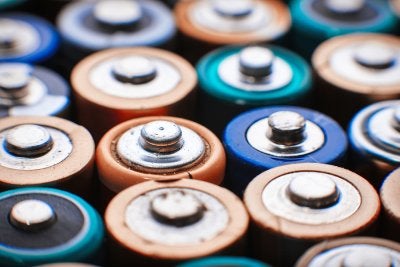
The Purpose of the Universal Waste Program
In recent decades, the EPA has recognized that certain types of hazardous waste are frequently discarded by many different types of businesses and industries. In order to streamline the collection process and keep hazardous materials out of landfills, the EPA created the universal waste program. This program regulates the processing of hazardous waste collection, and also helps companies with the proper disposal of potentially toxic and harmful materials.
The Types of Universal Waste
Universal waste falls into a few, distinctive categories. Batteries are among the most common types of universal waste that businesses toss out every day. All types of batteries are considered to be hazardous once they have been placed in the trash. Other categories of universal waste include pesticides, as well as equipment and lamps that contain traceable amounts of mercury. All of these items need to be safely handled by a designated waste processing facility.
The Categories of Universal Waste Participants
A company’s participation in the federal universal waste program will be dictated by the quantity of hazardous waste that it handles every day. Companies that produce small amounts of waste are categorized as small quantity handlers. Larger organizations and companies that generate high volumes of hazardous waste earn the designation of large quantity handlers. No matter your designation, a waste management company will help you safely process your universal waste products.
-
Answering FAQs About Industrial Solid Waste
If you own or manage an industrial plant or factory, your waste management will typically be monitored by the EPA or another federal organization. To make sure that your waste management procedures comply with federal regulations, you should work with a company that specializes in managing industrial waste near Atlanta . Your waste disposal company can help you create onsite solutions and collection plans for all of your solid waste. Let’s answer some of the most commonly asked questions that business owners have about their industrial solid waste.
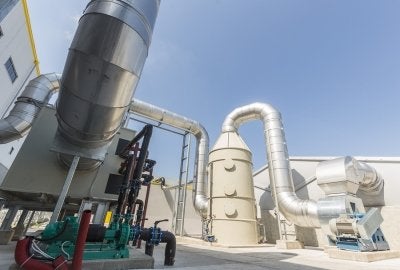
What is the definition of industrial solid waste?
In order to properly manage your industrial solid waste, it is helpful to understand how this category of waste is defined. Typically, industrial solid waste is categorized as any waste product that is in a solid, partially solid, or enclosed gaseous state after it has been generated. In order for waste to become labeled as industrial solid waste, it must be produced during an industrial or manufacturing process.
Are there methods for reducing industrial solid waste?
Many industrial businesses are interested in reducing the amount of solid waste that they create during their daily operations. Solid waste reduction can help to make a company’s manufacturing process more efficient, and waste reduction is also environmentally friendly. To reduce solid waste production, it may be possible to install new machinery that is designed to be more efficient, using fewer resources. Proper facility maintenance can also go a long way towards reducing solid waste in an industrial setting.
How can solid industrial waste be managed?
An experienced industrial waste management company can provide you with disposal and pickup services that will help to streamline your solid industrial waste management. Rather than relying on onsite services for proper containment and disposal, you can hire your waste management professionals to pick up, sort, and dispose of your solid waste using the latest waste management technology. Outsourcing your solid industrial waste management will help you ensure that your waste management plan complies with federal regulations.
-
Ideas for Making Your School a Greener Place
Are you looking for ways to cut down on your school’s waste near Atlanta? If so, then the good news is that there are many ways in which schools can improve their waste management practices and be more environmentally friendly. Continue reading for tips on making your school a greener place.

Conduct an Audit
You already know that you want to make your school more environmentally friendly, but knowing where to start can be overwhelming and confusing. For this reason, it’s a great idea to start with energy and waste audits. You can conduct these audits yourself or work with a professional company. The audit process will give insight into your school’s biggest problem areas.
Speak with Staff
There is a good chance that you’re not the only one who wants to work for a greener school. For this reason, you can benefit from speaking with teachers, custodians, and other staff members to learn their opinions regarding potential areas for improvement and which green initiatives they would be interested in participating in.
Include the Kids
If you work with children, then you already know how enthusiastic and outspoken they can be when it comes to learning about and protecting the environment. Include students in the process of making your school greener by asking for their input and letting them help with or even lead programs for educating others about recycling facts, setting up recycling bins, planting school gardens, and starting green clubs.
Put up Signage
Your school may already be greener than you would guess. It’s common for institutions to make use of energy-efficient and environmentally friendly products and practices, and it’s also common for only a handful of people to be aware of these green initiatives. Learn what your school already does to be green and spread the word through signs. Also, post educational signage that informs others of any new green initiatives that your school adopts and what they can do to help.
-
Easy Ways to Reduce Landfill Waste
We use landfills to take care of waste that we can’t recycle, but that doesn’t mean landfills are foolproof. This form of waste disposal can still harm the environment, so the practice is not quite as healthy as recycling serving Atlanta. Take a look at this video for a few easy ways to reduce landfill waste.
Recycling helps to keep waste out of landfills, but it’s not the only method you can use. When you bring your own bags to the grocery store, you won’t have to waste the bags that they offer you. If you forget your own reusable bags, ask for paper bags because they biodegrade more quickly. You should also consider printing on both sides of the sheet, and hold onto scrap paper so you can compile your scraps into a new notepad. Try to buy recycled products, and use food waste and yard trimmings for composting.
-
A Look at the Effects of Industrial Waste
Businesses like appliance manufacturers, warehouses, and food processing facilities are some examples of producers of industrial waste near Atlanta. Although the amount of industrial waste that is produced is less than that of some other waste sources in the United States, its impact on the environment can be much higher.
Water that is discharged from factories, for example, can pollute rivers and lakes with substances like chemicals, waste, and dyes. This water pollution can kill wildlife and harm the overall ecosystem, and the effects of polluted water have left several plant and animal species endangered. Also, plastics that are disposed of improperly or sent to landfills do not break down and can pollute the environment and pose a hazard to animals.
Today, there are still many factories and facilities that do not practice responsible waste management that involves recycling and proper waste disposal. However, the environmental effects of industrial waste can be reduced when it is handled with the right techniques, and an efficient waste management plan can also help ensure a safe and clean work environment.
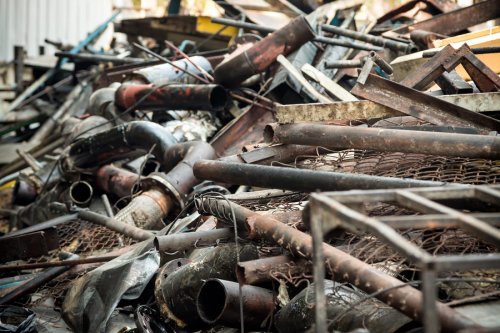
-
Why Your Carbon Footprint Matters
How often do you throw your trash into recycling bins ? Recycling things like aluminum cans, office paper, and glass bottles is a simple way to reduce your carbon footprint. If you’re wondering why many people are looking for ways to save energy and reduce waste near Atlanta, then read on to learn why your carbon footprint matters.
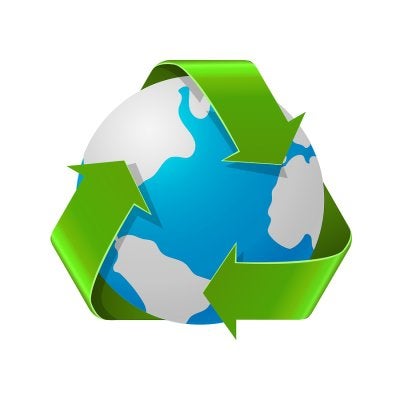
Environmental Changes
As the carbon footprints of people and industries increase, their effect on the environment does as well. Your carbon footprint corresponds with the overall amount of greenhouse gas emissions that you are responsible for due to your everyday activities, meaning that your carbon footprint relates to the climate change associated with global warming. For example, the rising temperatures affect precipitation rates and cause vegetation patterns and locations to change. Also, rising sea levels can displace people living in coastal towns and cities, and the erosion of shorelines can destroy shoreline ecosystems.
Wildlife Impact
The warming temperatures have influenced wildlife, as well. Changing weather patterns can threaten the species that depend on any vegetation unable to withstand the shifting climate. For example, migratory birds sometimes reach their destination only to find that their primary food source is unavailable due to unusual temperatures. At the same time, polar bears are losing their hunting grounds because of melting arctic ice.
Human Health
Food crops are heavily influenced by the weather, so it’s no surprise that rising temperatures are affecting the food supply in some areas. The changing climate has led to drought in some parts of the world, and the lack of precipitation results in smaller crops and increased levels of malnutrition. Also, drought can cause a lack of clean drinking water, and warmer climates allow disease-carrying mosquitoes to survive in areas that were once too cool for them.
Your Carbon Footprint
Reducing your carbon footprint can be accomplished in many ways. Recycling materials like glass, aluminum, and plastic can lower the amount of energy used to process raw materials. Also, you can unplug devices that aren’t in use, adjust your thermostat settings, and switch to energy-efficient light bulbs to reduce your carbon footprint.
-
Why Industrial Recycling Is Important
More and more, people are learning about what can and can’t go in their household recycling bins in Atlanta as they embrace their role in reducing the impact that they have on the environment. While residential recycling is important, it’s essential not to underestimate the important of industrial recycling .
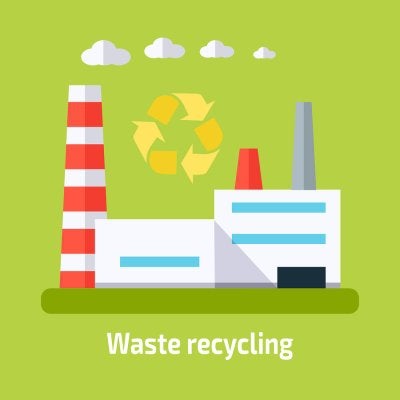
Recycling Preserves Resources
There are several reasons why people should feel motivated to recycle. First, when waste is sent to landfills, it can release harmful greenhouses gasses and chemicals into the air. Also, processing raw materials to create goods requires a huge amount of energy and is often environmentally destructive, while recycling demands less energy and reuses materials. Recycling can help preserve natural habitats and our current way of life, and it can also save businesses on operational costs and taxes.
Industries Create Waste
Industries and businesses create incredible amounts of waste every day. Food processing facilities, for example, end up tossing large amounts of food and throwing away food containers and shipping boxes. A distribution center might go through large amounts of paper every day, and automotive facilities and appliance manufacturers may generate massive amounts of scrap metal. In addition to creating the waste, disposing of it can be costly and wasteful, as it must be hauled to landfills where it takes up space. Because industries create so much waste every day, the importance of recycling in this area is critical.
Recycling Reduces Waste
If you’re interested in lowering your company’s carbon footprint and reducing your waste disposal costs, then there are several steps that you can take. First, learn what waste collection services are available for businesses in your area. Then, implement a recycling system that focuses on your company’s needs. If having a few small bins make sense for your office, then installing just one each for paper, plastic, and glass and educating your team about what should go in them is a great way to foster a greener company.
RECENT POSTS
categories
- Uncategorized
- Waste Management Atlanta
- Waste Disposal and Recycling
- Hazardous Waste Disposal
- Chemical waste removal
- solid waste removal
- R3 Program
- Sustainable Organizations
- Sustainable Waste Removal
- Commercial Waste Removal
- Materials Management Program
- Dumpster Rental
- Roll Off Dumpsters
- Construction Site Waste Removal
- Sustainability
- Recycling in Atlanta
- Industrial Recycling
- Industrial Waste Removal Services
- Southern Waste & Recycling
- Waste Removal Atlanta
- Waste Specialists
- Atlanta
- Infographic
- Front Load Dumpsters
- Rear Load Dumpsters
- Reusable Electronics
- Dump Truck Atlanta
- Recyclable Electronics
- Trash Compactors
- Recycling
- Recycling Program
- Office Recycling
- Metal Recycle
- Electronic Waste
